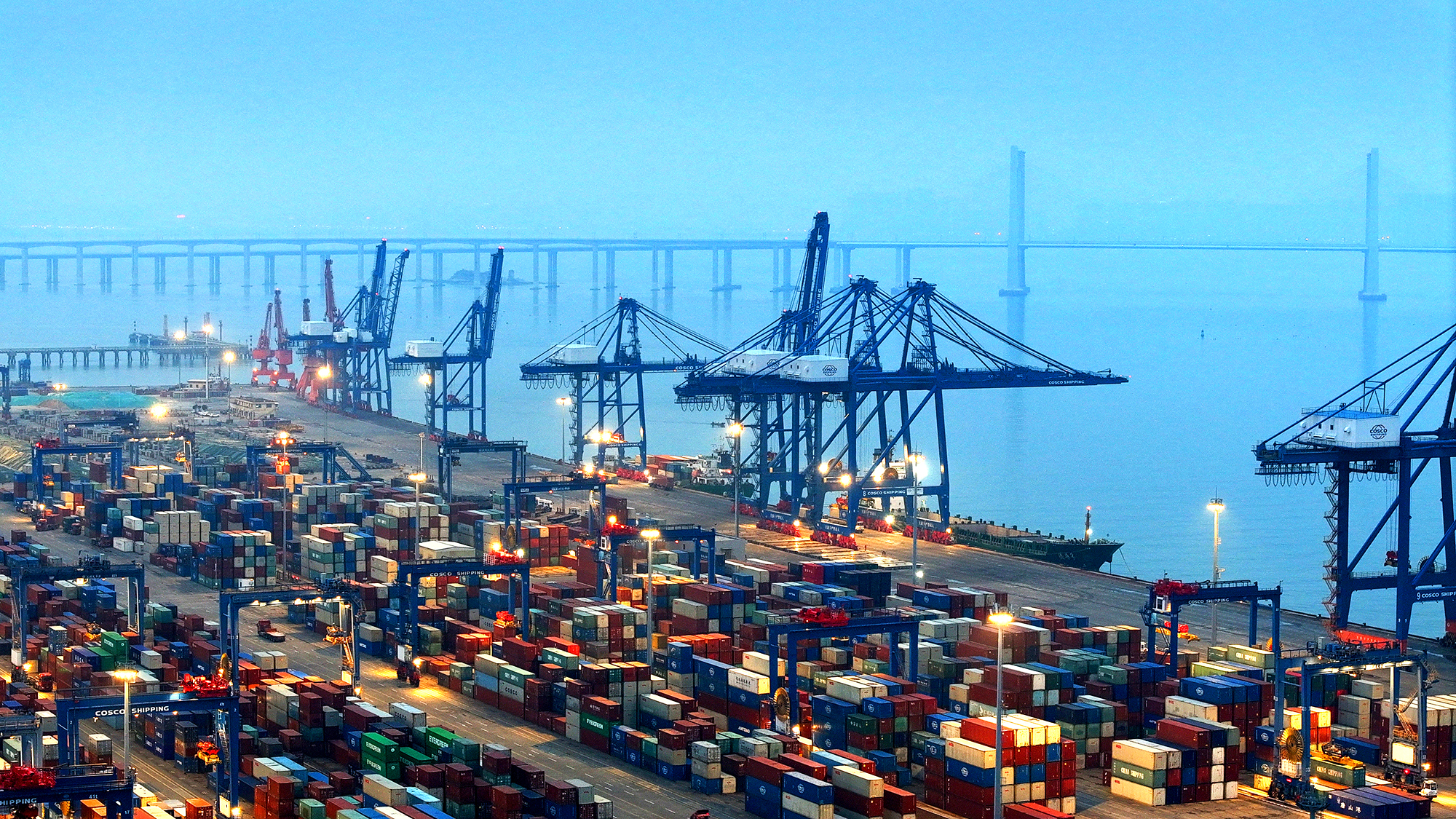Is this the end of globalisation?
American-led post-war order is 'finally starting to crumble' but that could bring about 'a more inclusive world'

A free daily email with the biggest news stories of the day – and the best features from TheWeek.com
You are now subscribed
Your newsletter sign-up was successful
"Globalisation is a force of nature, not a policy," said Tony Blair six years ago. "It is a fact."
Now, with Donald Trump's "Liberation Day" tariffs upending the near century-long process of integrating the global economy, the current prime minister has declared that era effectively over.
"First it was defence and national security. Now it is the global economy and trade," said Keir Starmer in The Telegraph. "Old assumptions can no longer be taken for granted. The world as we knew it has gone."
The Week
Escape your echo chamber. Get the facts behind the news, plus analysis from multiple perspectives.

Sign up for The Week's Free Newsletters
From our morning news briefing to a weekly Good News Newsletter, get the best of The Week delivered directly to your inbox.
From our morning news briefing to a weekly Good News Newsletter, get the best of The Week delivered directly to your inbox.
What did the commentators say?
Starmer's message was "received by some with bewilderment, treated as a knee-jerk reaction to Donald Trump abroad and Nigel Farage at home", said George Eaton in The New Statesman. But the "most striking thing – in a government not renowned for its consistency – was that we'd heard this before".
His chancellor, Rachel Reeves, declared on a visit to Washington almost two years ago that "globalisation, as we once knew it, is dead".
"It's a reminder that the death of globalisation (or at least a form of it) has been a process rather than an event," said Eaton.
The truth is that in his "assault on globalisation, Trump has been pushing on a door that was already ajar", said the Financial Times. The loss of jobs to less developed countries and the global financial crisis had "damaged public confidence in postwar economic orthodoxy" both in the US and in other Western nations.
A free daily email with the biggest news stories of the day – and the best features from TheWeek.com
With the rise of China, Trump has successfully "fused these resentments about trade with his own psychology. The globalisation era was defined by the idea of win-win – that both sides can benefit from compromise." For Trump, there can only be one winner.
"When regimes end, they end in phases," said Wolfgang Munchau on UnHerd. Communism collapsed over a decade, starting with the Solidarity strike at the Gdansk shipyard in 1980 and ending with the 1991 coup against Mikhail Gorbachev.
"Trump's first term was Gdansk, the canary in the coal mine." Last week's "Liberation Day" was "globalisation's Gorbachev moment".
What next?
The US-led post-war world order may be "finally starting to crumble", said Dr Amitav Acharya in The New York Times, but "chaos will not inevitably follow".
"That fear is partly based on two errors": that the period since the end of the Second World War has "not been as good for everyone on the planet" as it has been generally for citizens of the West, and that "the very precepts of order are not Western inventions".
And that is a "reason for optimism. To understand that the American order is not the only possible system – that, for many countries, it is not even a particularly good or fair one – is to allow oneself to hope that its end could augur a more inclusive world."
This in essence is what Starmer is aiming for as well. "The world has changed, globalisation is over and we are now in a new era", a Downing Street official told The Sunday Times. "We've got to demonstrate that our approach, a more active Labour government, a more reformist government, can provide the answers for people in every part of this country."
That might not mean "the end of globalisation entirely", but Starmer is hoping "a more balanced version can emerge", said Eaton.
-
 Political cartoons for February 16
Political cartoons for February 16Cartoons Monday’s political cartoons include President's Day, a valentine from the Epstein files, and more
-
 Regent Hong Kong: a tranquil haven with a prime waterfront spot
Regent Hong Kong: a tranquil haven with a prime waterfront spotThe Week Recommends The trendy hotel recently underwent an extensive two-year revamp
-
 The problem with diagnosing profound autism
The problem with diagnosing profound autismThe Explainer Experts are reconsidering the idea of autism as a spectrum, which could impact diagnoses and policy making for the condition
-
 Currencies: Why Trump wants a weak dollar
Currencies: Why Trump wants a weak dollarFeature The dollar has fallen 12% since Trump took office
-
 TikTok: New owners, same risks
TikTok: New owners, same risksFeature What are Larry Ellison’s plans for TikTok US?
-
 Trump wants a weaker dollar, but economists aren’t so sure
Trump wants a weaker dollar, but economists aren’t so sureTalking Points A weaker dollar can make imports more expensive but also boost gold
-
 Leadership: A conspicuous silence from CEOs
Leadership: A conspicuous silence from CEOsFeature CEOs were more vocal during Trump’s first term
-
 The end for central bank independence?
The end for central bank independence?The Explainer Trump’s war on the US Federal Reserve comes at a moment of global weakening in central bank authority
-
 Can Trump make single-family homes affordable by banning big investors?
Can Trump make single-family homes affordable by banning big investors?Talking Points Wall Street takes the blame
-
 What will the US economy look like in 2026?
What will the US economy look like in 2026?Today’s Big Question Wall Street is bullish, but uncertain
-
 Tariffs have American whiskey distillers on the rocks
Tariffs have American whiskey distillers on the rocksIn the Spotlight Jim Beam is the latest brand to feel the pain